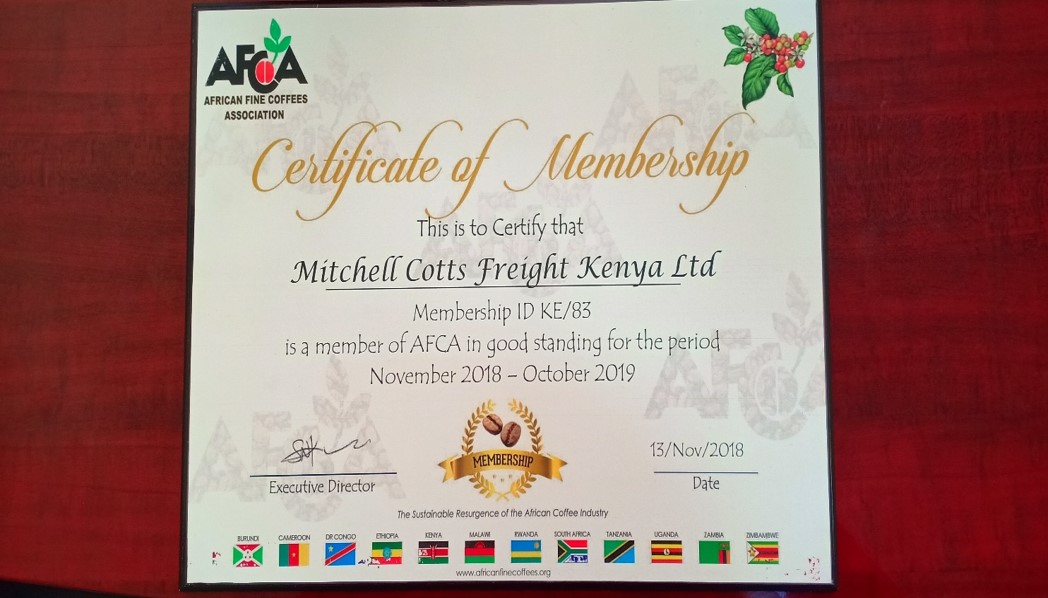By FEMME STAFF
The theme for this year’s International Women’s Day is celebrating women who are shining in different fields. For this article, we had a sit down with Naomy Karoney, a role model in the logistics career. Naomy is the Air Cargo Terminal Manager at Mitchell Cotts and here is what she had to say.
What does Mitchell Cotts do?
Mitchell Cotts is a logistics preferred partner that provides end to end logistics solution to its client. Its diversified operations involve Aviation (Cargo Handling, Air freight), Tea Warehousing, CFS Terminals in Mombasa and Transport.
What does your work entail as Cargo Terminal Manager at Mitchell Cotts?
To oversee operations at hand. Meaning to implement and consistently deliver cost effective cargo services to meet customer satisfaction and to ensure safety & security of cargo operations in compliance with relevant legislative & industry requirements.
I also ensure optimization of equipment, staff levels and shift patterns for effective service delivery and cost reduction and conformity with all regulatory requirements, organization standards and customer airline requirements.
What does it take to be a Cargo Terminal Manager? In terms of education, training and organizational skills?
One needs an undergraduate degree or IATA Diploma course and also be Certified in cargo skills and procedures, as well as leadership and station/ground handling management skills.
What does your typical day at work look like?
My daily routine involves checking records of the previous shift’s performance and make sure that all open items have been put to closure. If not, those are the areas of priority to start the day with. The whole concept is we are looking at the client and trying to avoid delays in releasing cargo. My main focus is to provide customer services with the available resources within our reach.
I also analyse daily post flight reports which service financial revenue and ensuring that quality objectives and delivery deadlines are met. I supervise appraisal of staff and every day I monitor flight turn-around and on time performance.
How does Mitchell Cotts ensure optimal working conditions for the women staff members?
This is interesting. We do quite a number of things, like providing lactating room for breast-feeding mothers. This mitigates absenteeism at work and ensures productivity.
As a matter of policy we have zero tolerance on exploitation of women employees. We have diversified management thus promoting women at same rate as men.
Most supervisors have a strict code of conduct which they sign and make sure it is adhered to, and working hours are enshrined in the company policies. We have a non-discriminative policy which encourage fair practise to all employees.
Women in shipping and logistics – do we have a whole lot of them and if not, what is putting them off?
The number compared to men is not that favourable, this is due to working conditions in the industry and in most cases, one might end up working very odds hours or probably work nights.
At times working in the fields can also be challenge with unfavourable weather conditions e.g. severe heat during dry weather etc or heavy down pour during monsoon.
Do you in your personal capacity or in your position at work play a role in getting more women into logistics as a career?
Of course – yes, like in my department I have a number of ladies/women employees who I mentor, coach and encourage to take up more responsibility and leadership positions. I advise them never to shy from making mistakes as this is the best way to learn.
Do you think there’s justification for an International Women’s Day or should we celebrate women all day every day?
I believe we should embrace such days probably in the same magnitude as Valentine because women are the backbone of any society and the nation at large. Look at Kenya. Having more women in leadership is something that we should really push for. Without women, society would be nowhere. Women should be celebrated daily, not only in season but also out of season.
What is your dream for the Kenyan girl child and the global female population as a whole?
Empowerment from early ages in her life. This is key for her future development. Girls should have training that features women rights. I would also wish that they be accorded same preference in job opportunities as men.
What would you say to young girls who are just starting out in their careers and have self-limiting beliefs about fields like logistics?
Never to give up on their dreams. The sky is the limit. Also not to be selective in choosing careers because there are equal opportunities out here.
I would advise them not to look for favours, but strive and believe in themselves.
More importantly, to acquire relevant trainings.











